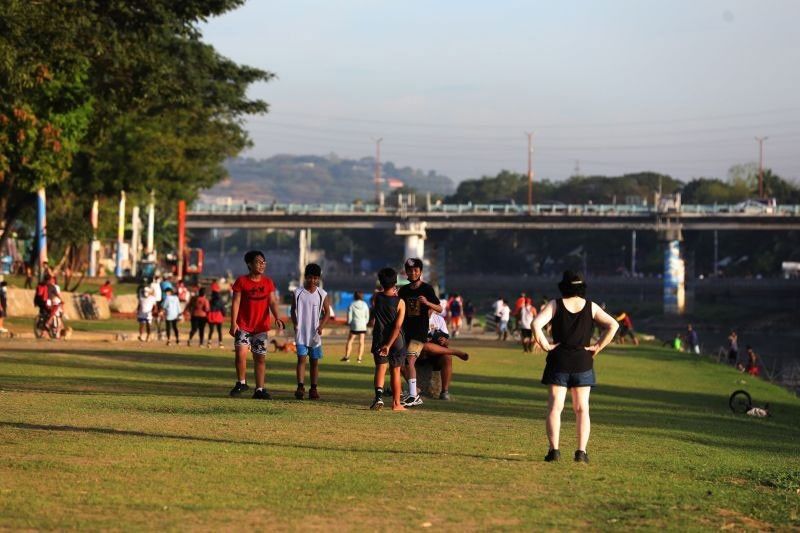NEDA studies scrapping of COVID-19 alert level system

MANILA, Philippines — The National Economic and Development Authority (NEDA) will look into recommendations to get rid of the alert level system in the capital, as the country moves toward a more endemic mindset.
In a briefing on Monday, Socioeconomic Planning Secretary Karl Chua said the government should begin the process of shifting from a pandemic to a more endemic mindset as part of the country’s exit plan from the pandemic.
Last week, presidential adviser for entrepreneurship Joey Concepcion floated the idea that the Philippines should eventually eliminate the alert level system, as lockdowns will be more granular.
Concepcion said the removal of the alert level system should begin in Metro Manila within the year.
“My recommendation is there is no need for alert levels anymore at a certain point, except maybe for Visayas and Mindanao, which are only taking their vaccines now. They were the last to take it. So, we give time,” Concepcion said.
“But NCR (National Capital Region), it can graduate out of alert levels. I don’t think there is a need. Self quarantine is going to be the mode,” he said.
Chua, for his part, noted that such a proposal would merit “some serious thinking.”
“These are very good ideas that we commit to look closely as part of the shift toward a more endemic mindset,” he said.
For the time being, however, the NEDA chief maintained that the alert level system should be retained since the country is not yet fully out of the pandemic.
Metro Manila and seven other provinces were downgraded to Alert Level 2 starting today, as COVID-19 cases continued to decline following the latest surge driven by the Omicron variant.
Apart from Metro Manila, Batanes, Bulacan, Cavite, Rizal, Biliran, Southern Leyte and Basilan are also under Alert Level 2.
Under this level, businesses can operate at 50 percent for indoor venues for those fully vaccinated, and 70 percent for outdoor areas. It is also under this alert level that minors are again allowed to go out.
“We have proven that the alert level system works by prioritizing or managing the risks and allowing the rest to move around safely and go back to work,” Chua said.
Ping: Learn to live with COVID
Having experienced what it felt like to be infected with COVID-19, and getting through it alive and well because of his vaccination status, Sen. Panfilo Lacson said yesterday it is about time “we start encouraging Filipinos to learn how to live with COVID-19.”
The presidential aspirant said he continues to advocate for a science-based and data-driven approach to address the recurring challenges of managing the effects of the ongoing pandemic nationwide by also looking at how other nations, particularly those in Europe, are coping with it as well.
“Just like these countries in Europe, you know, they are now treating the Omicron variant like an ordinary flu based on the studies they have conducted. Maybe we can also use the same data that they have, learn from their mistakes, as well as their recommended solutions,” Lacson told RMN station.
“Because with Omicron, I went through that when I tested positive about two weeks ago, it was really not that serious. It only felt like regular flu. I did not even experience a fever. So, I think we should look into that,” he said.
Lacson developed only mild symptoms of sore throat and low-grade fever when he tested positive for COVID-19 last Jan. 4 at the height of the Omicron surge. The senator has no comorbidity, and was fully vaccinated with a booster shot, which helped him recover quickly from the virus.
He said last week that he is supportive of moves to maximize the information and education campaign of the government on the safety and efficacy of duly authorized and approved COVID-19 vaccines to get more Filipinos vaccinated.
He said he remains conflicted with the “no vax, no ride” policy, stressing that there is no tradeoff between health and economy. Instead of discriminating the unvaccinated, he said the state must educate them on the benefits of having immunity from COVID-19 and make it easy for them to receive it.
Meanwhile, Sen. Francis Tolentino said the move to allow the entry of foreign travelers should not be a cause for worry.
Tolentino said entry of foreign tourists “is not only the decision of the government but also of the tourists.”
“They (tourists) are also afraid to go to places with high Covid infection rate where the hospital system is uncertain and they have to spend,” Tolentino said in Filipino.
“The decision of the IATF is correct, based on the belief that ‘we have to live with the virus.’ If we’re afraid of visitors, there are also visitors afraid to come here,” he said. – Paolo Romero
- Latest
- Trending






























